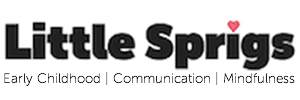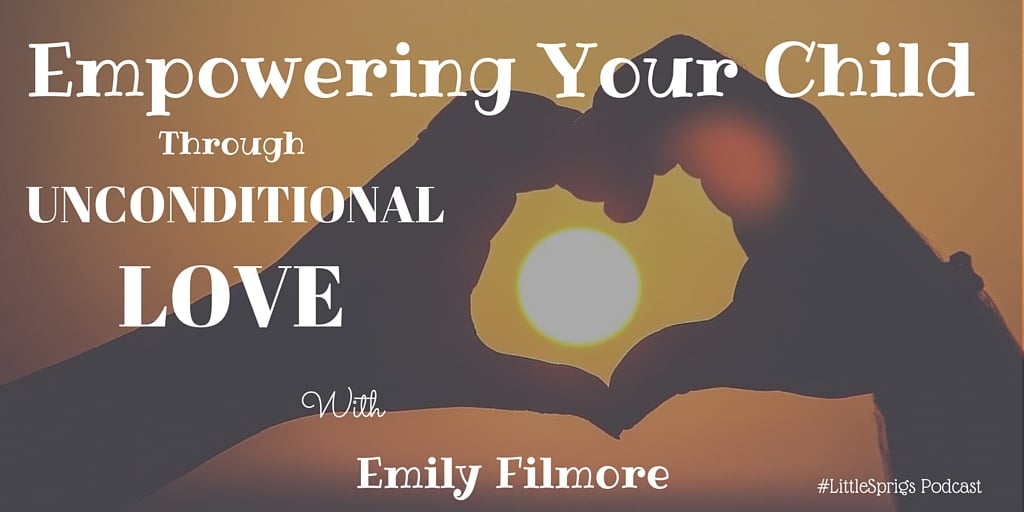Empowering Your Child Through Unconditional Love
“My love is unconditional. No matter what you could ever do, what you could ever say, where you could ever go, Mommy’s Love is unlimited. It will never stop, it will never be changed, and it will never go away.” – Emily Filmore
Meet Emily Filmore, one of the most compassionate, conscious, and unconditional lover of humans that I have met. She openly shares her path of spiritual parenting, what that means to her, and how she has managed to avoid the typical fallbacks in discipline.
With only one rule in her home, “Before you say or do anything, we ask, what would love do now?”
Do you wonder how anything gets done?
I did!
What about boundaries?
What about routine?
Listen in as she weaves us through a beautiful example of being fully present.
For generations we have been parenting from a place of deep fear, which leads to the desperate grasp at control tactics, threats, and bribes.
Is it possible for us to shift and parent from a place of love, trust, and connection?
How would the world change if we did?
Are you demanding “Respect” from your child, but confusing it with “Obedience”?
If you raise your child to be completely obedient, what kind of life are you preparing them for?
It takes time, effort, and moment by moment presence to parent consciously.
But it is important to ask ourselves, Do I want temporary compliance that leads to a life of resentment and separation, or do I want a deeply connected, life long relationship with my child that is based on trust and love?
Is your current parenting style raising your child to be a free thinker?
One of the biggest challenges in parenting is keeping the lines of communication open.
Emily discusses how she reassures her children that she is always on their side, that they can bring anything they experience to her.
One of her biggest fears is that they will have a challenge and fear her reaction and hide it from her.
Often times when someone ( your child, friend, partner…) comes to you with a difficult challenge, it is tempting to want try and fix it, offer advice, share a similar experience, etc.
It can be hard to truly hold space for them to be heard, felt and seen.
Emily shares how she offers her family and friends both simultaneously so they don’t feel alone or isolated and still feel heard.
Can we let go of the idea of right and wrong to meet our loved ones where they are?
As our children grow older and begin to judge themselves, how do they maintain trust that we will never stop loving them?
It is the worst feeling in the world to feel like we are on opposing teams with a loved one when a difference of feeling or opinion arises.
Listen in to hear what Sage, Emily’s 9 year old daughter, came up with on her own, as a sensory tool to use with her mother when things get too heated.
How can we hold space for our children, without freaking out or reacting, when they tell us something hard to hear about their experience?
It is hard when your child is coming to you with something you feel that could harm them, especially when you feel responsible for their well being.
So how do we communicate with them without blame, judgement, control, and fear?
Don’t worry, we are not pretending that any of this is easy…
In the end, Emily talks about why her, Laurie Lankins Farley, and Neale Donald Walsch decided to write Conversations With God for Parents.
They chose 18 of the 25 core concepts from Conversations With God that they felt were accessible for children.
I ask Emily to share one of the concepts with us, it’s meaning and purpose, and how we can bring this to children of mixed ages.
This insightful conversation is brought to a close with a warm reminder to allow Love to be our guide and we will find the connection, peace, and understanding that we all desire. <3
All the best,
Christina


Comments
Hi Kelly, Thanks! And you are welcome, I was very intrigued by her as well:) Very wise of you to recognize that she is basing her rule on a core value. So so key. When we take the time to identify our core values, we have a solid foundation to place our limits on, instead of making them up on the spot (which are usually based on personal preference;) Healthy hygiene is also a great value to have!
I enjoyed listening to your honest, open conversation about love and how it informs conscious parenting. Thanks for asking so many of the questions that were on my mind. It’s so interesting how Emily has managed to distill many possible core values to one, so that the only rule in her house can be to ask “What would love do now?” I don’t feel as if I need to do the same right now, but I like recognizing that when my son asks, “Why do I have to wash my hands?” and I respond, “Because it is important to us to take care of our bodies,” the foundational value I’m really relying on is love.